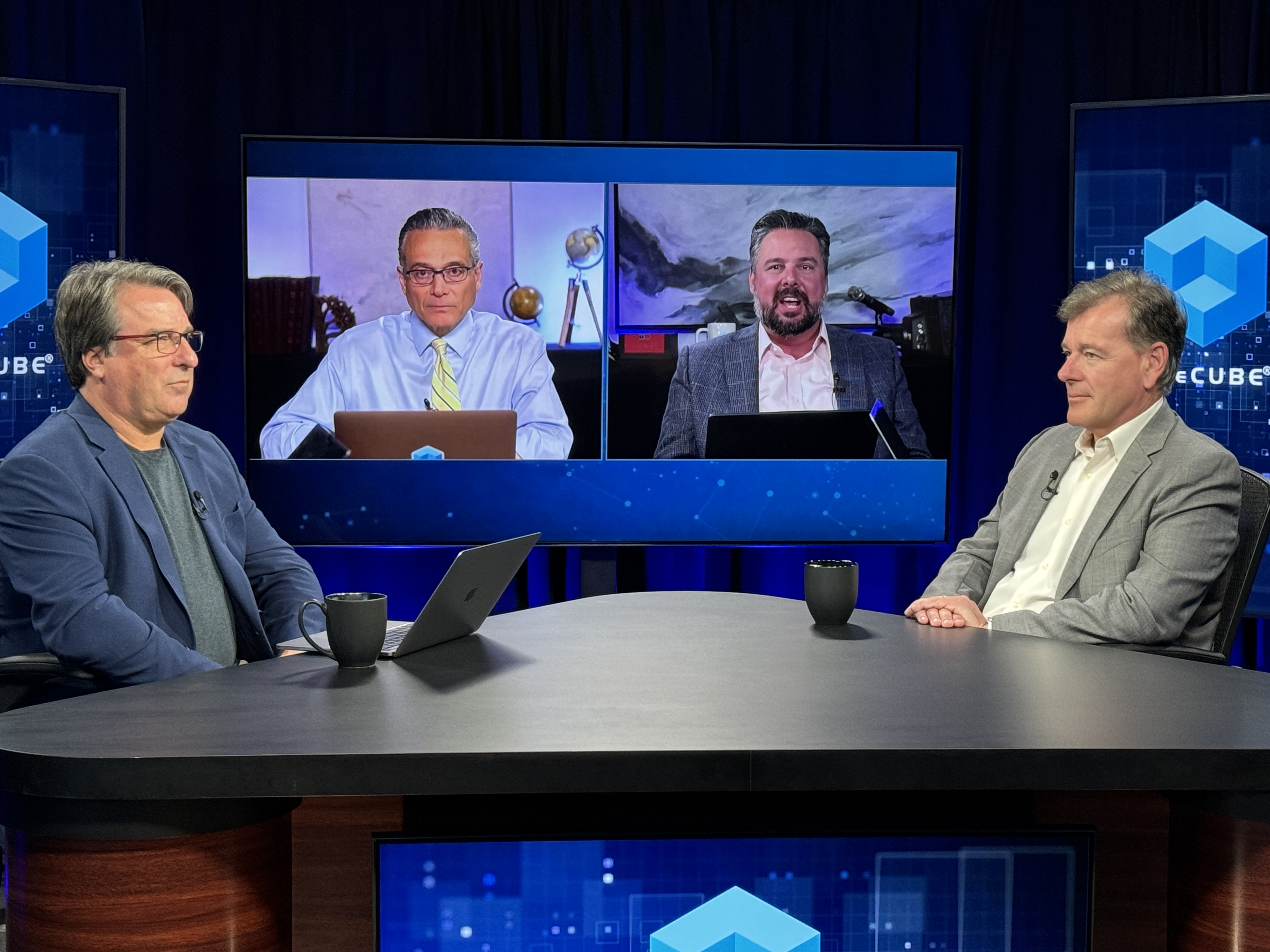 INFRA
INFRA
 INFRA
INFRA
 INFRA
INFRA
VMware has undergone a transformative journey since it was acquired by Broadcom Inc., including the VMware Cloud Foundation. This evolution is marked by strategic restructuring, enhanced partner networks and the integration of cutting-edge AI capabilities, resulting in significant cloud infrastructure innovations.
These changes have reshaped VMware’s approach to private cloud solutions. The company is now focused on delivering improved integration and support for its partners and customers across various environments.

TheCUBE’s John Furrier, Dave Vellante, Rob Strechay and Christophe Bertrand talk about cloud infrastructure innovations .
“Certainly, they’re making the right moves. There’s no question about this,” said Christophe Bertrand (pictured, right), principal analyst at theCUBE Research. “When you give a partner’s visibility of other margins, you are doing something right. That’s the first point. The other part is there is an opportunity here for value add for different types of partners, whether they’re resellers, whether they’re cloud service providers. Time will tell, but it looks like all of the components are in place.”
Bertrand spoke with his fellow theCUBE Research analysts John Furrier (left), Dave Vellante (second from left) and Rob Strechay (second from right) at the VMware Cloud Foundation Transformed event, during an exclusive broadcast on theCUBE, SiliconANGLE Media’s livestreaming studio. They discussed the evolution of VCF and cloud infrastructure innovations, particularly through the integration of AI. (* Disclosure below.)
Under Broadcom’s ownership, VMware Cloud Foundation is undergoing a significant transformation toward more sophisticated, integrated cloud solutions. This shift focuses on enhancing partner relationships and simplifying licensing models, aiming to improve service delivery, profitability and operational clarity for partners and end users, setting a foundation for durable and scalable cloud services, according to Strechay.
“I think they needed to make a lot of those changes to bring everything together,” he said. “Kubernetes used to be a plugin on top of what is now VCF. Bringing it in as a first-class citizen being part of it, managing everything the same, same observability, same workflow, being able to do the clusters at scale definitely gives them a better play.”
In addition to reorganizing partner networks, VMware is also intensifying its product integration efforts. The company is actively working on internal and external integrations of the VMware Cloud Foundation components, which are crucial for leveraging the full capabilities of the ecosystem. These integration efforts are pivotal in ensuring that VMware can deliver a seamless, efficient service experience that caters to the dynamic needs of today’s enterprises, according to Bertrand.
“On the partner side, they have clearly reorganized themselves, looked at adopting the Broadcom program, cleaned up a bunch of complex licensing questions for both end users and cloud service partners,” he said. “On the product side, I think the big challenge and the big opportunity is integration not only internally between the various components of VCF, but also externally. That’s going to be absolutely key to the ecosystem.”
The integration of Kubernetes into VMware’s offerings as a core component underscores the company’s commitment to advancing its private cloud capabilities. By elevating Kubernetes from an ancillary role to a central component of the cloud infrastructure, VMware is enhancing the manageability and scalability of cloud deployments. This transition not only facilitates the handling of large-scale infrastructures, but also supports the implementation of AI-driven strategies within the private cloud domain.
“When you start to look at Kubernetes and how they’re building it in, now instead of it being another platform, it’s part of the same platform. It’s managed the same way. You get the scale that security, and it’s not complex,” Strechay said. “I think that complexity and reducing and everybody wants the easy button with Kubernetes. I think that this is a good time for them to really jump in on that and bring it together.”
Private AI is emerging as a significant category within cloud strategies, driven by the need for data security and proprietary technology. VMware’s focus on private AI reflects a broader industry trend where businesses are increasingly looking to harness the power of AI while maintaining control over data and infrastructure.
“This is where I think partners really have to think about shifting their business models,” Vellante said. “VMware is not going to be the data expert, but there’s tons of opportunity for partners to really help customers identify that proprietary data, how to leverage that data and make it specific for their industry, and then really make the AI sing beyond what is just co-generation and customer support.”
Here’s the complete video interview, part of SiliconANGLE’s and theCUBE Research’s coverage of the VMware Cloud Foundation Transformed event:
(* Disclosure: TheCUBE is a paid media partner for the VMware Cloud Foundation Transformed event. Neither VMware by Broadcom, the sponsor of theCUBE’s event coverage, nor other sponsors have editorial control over content on theCUBE or SiliconANGLE.)
Support our mission to keep content open and free by engaging with theCUBE community. Join theCUBE’s Alumni Trust Network, where technology leaders connect, share intelligence and create opportunities.
Founded by tech visionaries John Furrier and Dave Vellante, SiliconANGLE Media has built a dynamic ecosystem of industry-leading digital media brands that reach 15+ million elite tech professionals. Our new proprietary theCUBE AI Video Cloud is breaking ground in audience interaction, leveraging theCUBEai.com neural network to help technology companies make data-driven decisions and stay at the forefront of industry conversations.